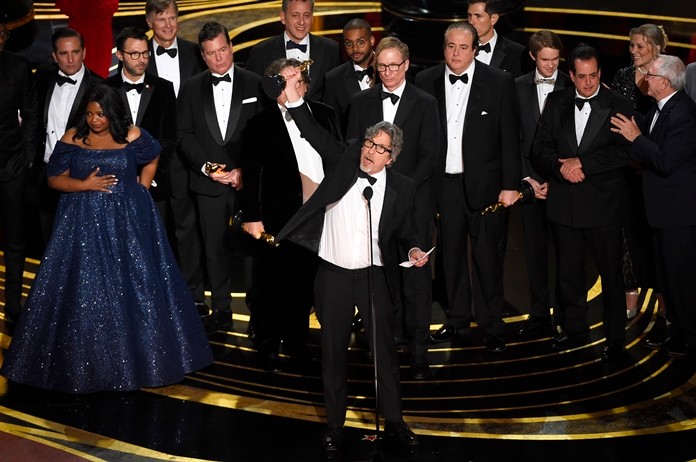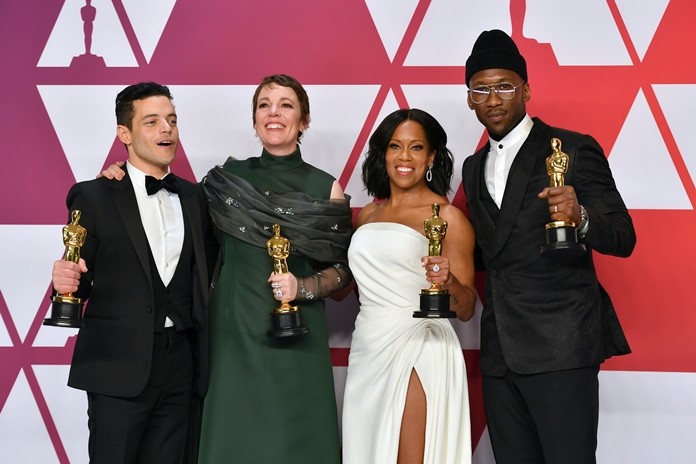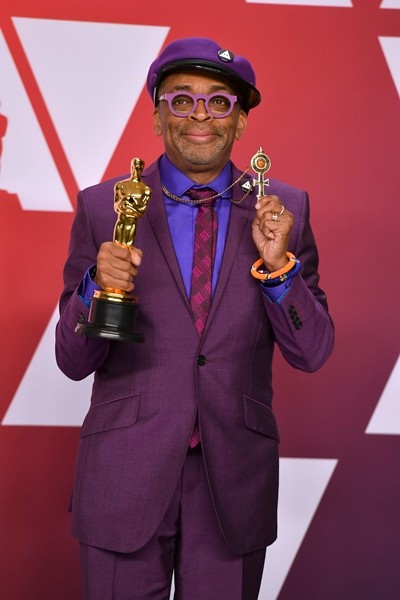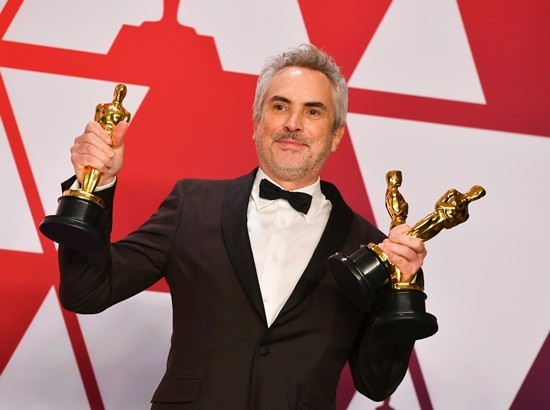
Los Angeles (AP) — The segregation-era road-trip drama “Green Book” was crowned best picture at the 91st Academy Awards last Sunday, handing Hollywood’s top award to a film seen as a feel-good throwback by some and ridiculed as an outdated inversion of “Driving Miss Daisy” by others.
In a year where Hollywood could have made history by bestowing best picture on Netflix (“Roma”) or Marvel (“Black Panther”) for the first time, the motion picture academy instead threw its fullest support behind a traditional interracial buddy tale that proved as popular as it was divisive. But Peter Farrelly’s “Green Book” weathered criticism that it was retrograde and inauthentic to triumph over more acclaimed films and bigger box-office successes.

It was an unexpected finale to a brisk, hostless ceremony that was awash in historic wins for diversity, including Spike Lee’s first competitive Oscar. More women and more individual black nominees won than ever before.
The Oscars otherwise spread awards around for Ryan Coogler’s superhero sensation “Black Panther,” Alfonso Cuaron’s black-and-white personal epic “Roma” and the Freddie Mercury biopic “Bohemian Rhapsody.”
Lee, whose “Do the Right Thing” came out the same year that “Driving Miss Daisy” won best picture, was among those most visibly upset by the award handed to “Green Book.” After presenter Julia Roberts announced it, Lee stood up, waved his hands in disgust and appeared to try to leave the Dolby Theatre before returning.
Lee’s win for best adapted screenplay for his white supremacist drama “BlacKkKlansman,” an award he shared with three co-writers, gave the ceremony its signature moment. The crowd rose in a standing ovation, Lee leapt into the arms of presenter Samuel L. Jackson and even the backstage press room burst into applause.
One of the biggest surprises of the night was in the best actress category. Olivia Colman won for her Queen Anne in the royal romp “The Favourite,” denying Glenn Close her first Oscar. Close remains the most-nominated living actor never to win, with seven nominations.

The night’s co-lead nominee “Roma” won best director and best cinematography for Cuaron, whose film also notched Mexico’s first foreign language film Oscar. Cuaron and his “Three Amigos” countrymen — Alejandro Inarritu and Guillermo del Toro, who presented Cuaron with best picture — have had a stranglehold on the category, winning five of the last six years.
The wins for “Roma” gave Netflix its most significant awards yet but “Green Book” denied the streaming giant the best-picture win it dearly sought. Netflix remains to some a contentious force in Hollywood, since it largely bypasses theaters. The wins for “Black Panther” — along with best animated film winner “Spider-Man: Into the Spider Verse” — meant the first Academy Awards for Marvel, the most consistent blockbuster factor Hollywood has ever seen.
The lush, big-budget craft of “Black Panther” won for Ruth Carter’s costume design, Hannah Beachler and Jay Hart’s production design, and Ludwig Göransson’s score. Beachler had been the first African-American to ever be nominated in the category. Beachler and Carter became just the second and third black women to win non-acting Oscars.
Two years after winning for his role in “Moonlight,” Mahershala Ali won again for his supporting performance in “Green Book” — a role many said was really a lead. Ali is the second black actor to win two Oscars following Denzel Washington, who won for “Glory” and “Training Day.” Ali dedicated the award to his grandmother.
“Bohemian Rhapsody,” which kicked off the ABC telecast with a performance by Queen, won four awards despite pans from many critics and sexual assault allegations against its director, Bryan Singer, who was fired in mid-production for not showing up. Its star, Rami Malek, won best actor for his full-bodied and prosthetic teeth-aided performance, and the film was honored for editing, sound mixing and sound editing.
Queen launched Sunday’s ceremony with a medley of hits that gave the awards a distinctly Grammy-like flavor, as Hollywood’s most prestigious ceremony sought to prove that it’s still “champion of the world” after last year’s record-low ratings.

To compensate for a lack of host, the motion picture academy leaned on its presenters, including an ornately outfitted Melissa McCarthy and David Tyree Henry and a Keegan-Michael Key who floated down like Mary Poppins. Following Queen, Tina Fey — alongside Amy Poehler and Maya Rudolph — welcomed the Dolby Theatre audience to “the one-millionth Academy Awards.”
Though the once presumed front-runner “A Star Is Born” saw its chances flamed out, it won, as expected, for the song “Shallow,” which Lady Gaga and Bradley Cooper performed during the ceremony. As she came off the stage, Cooper had his arm around Gaga as she asked, “Did I nail it?”
 |
 |





